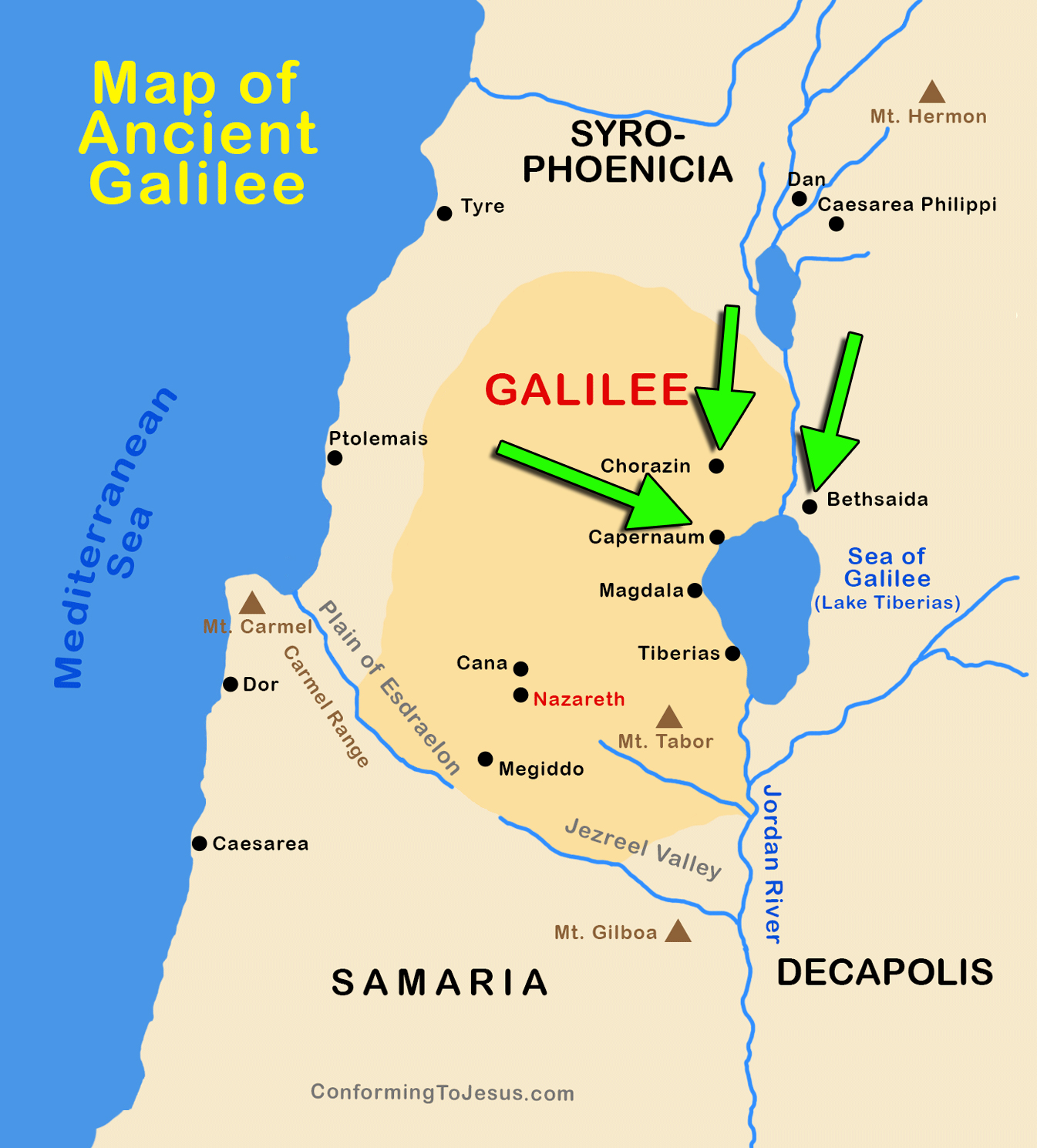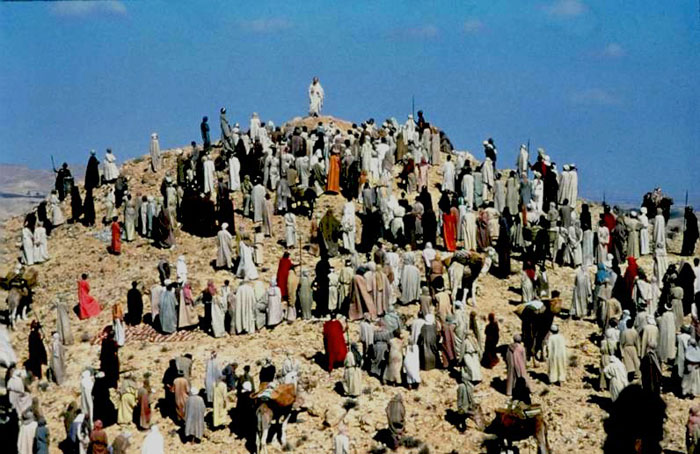INTRODUCTION
Important to the background
of all of the lessons Jesus taught and all the dialogues that He had with the
Jewish leadership of His time, is the remembrance of the angels of heaven. We
know from the Scriptures that at some distant time in the long ago past there
was a war in heaven. One third of God’s angels sided with the evil one and were
cast down from heaven with no chance of forgiveness or salvation – ever. Why,
because of their extreme high calling – to stand in the very presence of God
almighty. The breaking of this extreme calling and honor warranted a no
forgiveness ever status.
Then… enter the human race through Adam and Eve.
Selected as the creatures to be made in the image and likeness of Almighty God,
and selected as the creatures that could stand before God by Faith in Him and
become physical family members of the household of God. Consider, like the
position of God’s chosen Angels, the extreme honor of being called to that
position. The Fall of mankind was introduced to bring about a situation whereby
mankind had the opportunity to choose Almighty God – who walked with him in the
Garden – or choose not God. That choice would mark every human being for all of
time and eternity.
Then… enter the nation of Israel bound by a covenant
of Law at Mount Sinai. They were a nation chosen and covenanted (contracted)
by God for the purpose of bringing a God relationship to the world around them.
It was their responsibility to be holy under the Law of God. Their
sacrificial system was to teach them and their world that man cannot be holy…
but can be forgiven through the grace of God and the blood of the Lamb. If they
were successful at God’s calling, then He would establish an earthly kingdom for
them, and they would be His forever. But, as a nation, they failed. They failed
not just once, but continually. They dishonored God, failed to keep His
commandments, turned His grace into the worship of the Law, and turned
away from Him to every foreign idol and god. Of course, like the Angels of
heaven, many would choose Him as their God. Then many would receive their holy
position before God through substitutionary sacrifice – that was effective
through a long prophesied final sacrifice.
Following the pattern of how God dealt with the warring
angels, we should expect that God would, at least temporarily, forsake
the Nation of Israel because of this. Six hundred years before Jesus’ birth
Almighty God and His glory departed from the Jerusalem temple and never
returned. God no longer dwelling among men – until Jesus came.
Coming to these parables we find Jesus speaking to
the chosen and covenanted people of God bringing them their last opportunity
as a nation to see and understand the grace and loving heart of God in an
offering of the establishment of their promised kingdom. He made it clear in His
teachings that this promised kingdom would not only be on earth, and it would
also be heavenly and eternal. He was there to bring forgiveness for sins and
not to destroy the kingdom of Rome.
As we begin our look at the Parables of Jesus, first, we need to remember that
Jesus was not addressing Christians and the Church. He was addressing Jews who
were part of the Nation of Israel that was in a covenant relationship
with their God – they were under the Law of God. They were also a
conquered and occupied people and land. They had been through a series of
conquering nations – Egypt, Assyria, Babylon, Greece, Persia, and now Rome. They
had lived lives that were mostly under the discipline of God for their failure
to Love, Honor, Obey, with all their hearts, souls, and minds, their Loving and
faithful God.
Over the earlier centuries the religious leadership of this nation had taken the
LAW given to Moses at Mt. Sinai, and rewrote and converted it to that they
called the “Oral Law.” This Oral Law was written in such a way to put a clear
distinction between the religious leadership (Power and Money) and the ordinary
citizen. Jesus tells us that they perverted the law in such a way that the
religious leadership, and those with money and power, could sin under the law
with its approval. Most ordinary people were just referred to as “sinners.”
At this moment, in the text, we find that Jesus has gathered His following and
begins to address them. In the background of our parable is the educated
“teachers of the Law,” (Scribes, Pharisees, and Sadducees) who would stand and
lecture their listeners on the importance of keeping the Law (as rewritten by
them), and faithfully following the demands of formalistic ritual in every exact
detail putting them under enormous cultural pressure.
Jesus now stands on the mountainside, slightly above His disciples -- as was the
practice for a teacher of the Law in that day -- but instead of explaining the
Law of God to them, He opens up His heart and begins to explain the Grace of
God, and His kingdom, to them. The Gospel writer John reports, "No
one has ever seen God. The only begotten God [Jesus], who is in the bosom of the
Father, He [Jesus] unfolds Him [the Father]" (John 1:18, Lit.)."
In order to understand Jesus’ position and His
opening words… picture yourself, as a Jew, seated upon the ground at the feet of
your Rabbi as he explains the Law of God to them. They are ready for this Rabbi
to begin explaining the “Oral Law” to them. Just a few verses into this sermon
on the mount, Jesus, as the expected teacher of that Law turns to His followers
and says, "But I say to you...."

Why Was Jesus’ Ministry Centered In Galilee?
Jesus largely focused much of His ministry in one small
place in Israel: Galilee, around the three cities of Chorazin (about 3
miles North of the Sea of Galilee), Capernaum (on the Northwest coast of
the Sea of Galilee), and Bethsaida (about 2 miles Northeast of the Sea of
Galilee. Although many people today assume that Galileans were simple,
uneducated peasants who lived in an isolated area, the truth is they interacted
more with the world than the Jews of Judah and Jerusalem. The Via Maris trade
route which connected Egypt with the northern empires of Syria, Anatolia
(Turkey), and Mesopotamia (Iran-Iraq), passed through Galilee, exposing them to
many different peoples and cultures.
The Galileans were also the most religious Jews in the world during Jesus' time.
They revered and knew the Scriptures well. They were passionately committed to
living out their faith and passing their faith, knowledge, and lifestyle to
their children. This led to the establishment of vibrant religious communities;
a strong commitment to families and country; and active participation in the
local synagogues; the community centers of that day. In fact, more famous Jewish
teachers came from Galilee than anywhere else.
The Galileans resisted the pagan influences of Hellenism [under Greek culture
and influence] far longer than their Judean counterparts, and when the great
revolt against the Romans and their collaborators finally occurred (AD 66-74),
it began among the Galileans. In fact, most of those who followed Jesus
everywhere He went fully believed He was the Messiah, the chosen and anointed
One of God.
Clearly God carefully prepared the environment in which Jesus was born and
reared so that he would have exactly the context he needed to effectively
present his messages of "The Gospel," and "the kingdom of heaven,"
so that people would understand and join His new movement. He was born in
Bethlehem, Judea. He moved to Nazareth to minister to those who would “hear”
what He had to say.
A deeper knowledge of Galilee, and its people, help
us understand the great faith and courage of Jesus' disciples, who left Galilee
and shared the "good news" with the world (Evidence indicates that Judas
Iscariot was apparently the only non-Galilean among Jesus' twelve, closest
disciples). The disciples' courage, the message they taught, the methods they
used, and their complete devotion to God and his Word were born in Galilee's
religious communities.[i]

Our Prime Context
Our prime context will come from the book of Matthew
where Jesus has begun His "Sermon on the Mount." We find Him among a great crowd
of Galileans in the town of Capernaum. Matthew tells us the who
(Jesus, the Disciples, and some Pharisees and Scribes), the where and the
why come from Isaiah Ch-9, and the when will be dependent upon the
who.

POJ map of Zebulun & Naphtali
It's especially interesting that Matthew opens chapter 5
with a quote from Isaiah 9. Capernaum, along the North edge of the Sea of
Galilee, was the covenanted home of two of the sons of Jacob’s family - the
tribes of Zebulun and Naphtali. Isaiah 9:2 goes on to say,
"The People who walk in darkness will see a great light;
Those who live in a dark land, the light will shine on them."

"The King and the His Promised Kingdom"
Those who heard this quote would immediately recognize
it as speaking to Israel concerning the coming of the Promised King of the
Promised Land - The Promised Kingdom. As Isaiah's text continues into
chapter 9, we find those wonderful words that start in verse 6,
"For a child will be born to us, a son will be given to
us; and the government will rest on His shoulders; and His name will be called
Wonderful Counselor, Mighty God, Eternal Father, Prince of Peace. There will be
no end to the increase of His government or of peace, on the throne of David and
over his kingdom, to establish it and to uphold it with justice and
righteousness from then on and forevermore. The zeal of the Lord of hosts will
accomplish this."
And Jesus is here, in Capernaum, teaching His disciples what the Kingdom will
be like.
As Jesus walks along His path, he stops and calls Peter
and Andrew, fishermen. And then He calls James and John, the "Sons of Thunder,"
and He continues to preach "The Gospel of The Kingdom." Together they travel
together healing and teaching. When we enter Chapter 5, Jesus begins his now
famous "Sermon on the mount." And He begins with "The Beatitudes."
Matthew 5:3-12
“Blessed
are the poor in spirit, for theirs is the kingdom of heaven.
“Blessed
are those who mourn, for they shall be comforted. “Blessed are the
gentle, for they shall inherit the earth. “Blessed are those who hunger
and thirst for righteousness, for they shall be satisfied.
“Blessed
are the merciful, for they shall receive mercy.
“Blessed
are the pure in heart, for they shall see God.
“Blessed
are the peacemakers, for they shall be called sons of God.
“Blessed
are those who have been persecuted for the sake of righteousness, for theirs is
the kingdom of heaven.
“Blessed
are you when people insult you and persecute you, and falsely say all
kinds of evil against you because of Me. Rejoice and be glad, for your
reward in heaven is great; for in the same way they persecuted the prophets who
were before you.

The Focus of our study "It's not what we
might think!"
Of enormous importance to every one of us is that as we
study His words… they perhaps don’t mean what “we” want them to mean. He is the
author of creation, His message to us concerns what He intends for us to learn
and know.
As we listen and learn the words of Jesus… He reminds us
that what we already know… like what the Jews and Pharisees of His day taught...
Like what His Disciples and followers thought they knew... may not be exactly
what He wants us to know, for He said to His disciples and followers...
“But
I say to you,” and
“You who have ears for hearing, be hearing these words.”
Even now for you... have you ever thought about just
when these blessings might be true? Non of this could be fully true then, non of
this could be fully true a hundred years later, or even a thousand years later.
It's not fully true now. Yes, believers do benefit from the Beatitudes, but they
will only be fully true when the Kingdom of God is established at the second
coming of our lord and savior! Only then, under the rule of our Beneficent King
- the Lord Jesus, the Christ, will these wonderful blessings come to pass in
their fullness. But... even then much of mankind will fail at holiness and
faith. The absolute fulfillment will then come with Judgment and the believer's
move to the Heavenly Kingdom - with a new heaven and a new earth.
Our prime context will come from the book of Matthew where Jesus has begun His
"Sermon on the Mount." We find Him among a great crowd of Galileans in the town
of Capernaum. Matthew tells us the who (Jesus, the Disciples, and
some Pharisees and Scribes), the where and the why come from
Isaiah Ch-9, and the when will be dependent upon the who.
“YOU ARE THE SALT OF THE EARTH”
Matthew 5:13; Luke 14:34-35; Mark 9:50
The Words of Jesus - The Combined Text
So, let's concentrate on the words of Jesus that can
change you and me right now. Let's see how God can change you - even today.
Jesus is teaching His new disciples and those who have
followed Him to this mountainside. He has just started His "Sermon on the
Mount," when at the end of the twelfth verse He opens His mouth and says...
[Mt 5:13a]
“You are the salt of the earth;
[Mk 9:50b]
salt is good, but if the salt becomes unsalty, [Mt
5:13c] how can it be made salty again? It is no longer good for anything,
[Lk 14:35a] It is useless either for the soil
or for the manure pile, [Mt 5:13d] except to
be thrown out and trampled under foot by men.
[Mk 9:50c]
Have salt in yourselves, and be at peace with one another.
[Lk 14:35c]
He who has ears to hear, let him hear.”
If you are at all familiar with this parable, you can
see that combining the three instances (Matthew, Mark and Luke)… we have
considerably more detail – and all in one place.
As we look at the words, we see Jesus speaking to these
Jews somewhere near Capernaum, just north-east of the sea of Galilee.
What does Jesus mean? We mentioned earlier that Jesus'
message is probably not what you think (or sometimes may have been taught).
The Focus Point
Think back to Mark Twain...
Jesus is telling these Jews what they knew, or should
have known, about their place in the world. God had given this nation a
covenantal place in the job of winning the nations around them to the belief in
the One God Yahweh, and His grace driven forgiveness of sins by way of the
sacrifice of “the lamb.” They were to be the “Salt” of the earth, but what did
Jesus mean by this?
The reason it’s confusing is that salt had a number of
purposes in the ancient world. At least five of them are relevant to Jesus’s
words about his disciples: salt was used for flavoring, preserving, sacrificing,
destroying, and fertilizing. Rather than assuming that Jesus’s statement is
confusing and then debating which particular use of salt he had in mind, it’s
best to assume he knew what he was saying and that metaphors can function in
multiple ways. Followers of Jesus are like salt: although we’re ordinary and
everywhere and get involved in pretty much everything whether we’re noticed or
not, we also have a variety of roles to play as God’s kingdom comes on earth.
Let's look briefly at each of the five basic uses of
salt.
1.
Flavoring
This is probably the
use of salt that most of us think of because it's the only one of the five that
still has large application today - and it's a powerful illustration of the way
Christians are to serve the world. We’re intended to spread throughout the world
and enhance it, adding flavor to things that would be bland, drawing out the
blessings of whatever is good, and providing a contrast by being distinct and
different. When Paul tells us to ensure that our speech is “seasoned with salt,
so that you may know how you ought to answer each person” (Col. 4:6), this is
the kind of thing he has in mind.
2.
Preserving
Salt was the ancient
equivalent of refrigeration. If you wanted to stop meat or fish from decaying,
you could rub in salt and make it edible for longer. This was the main reason
salt was so valuable.
Jesus’ disciples (us too) are to be those who preserve
the spiritual lives of all those around us. We're not to let our friends and
neighbors’ decay in their spiritual lives as much as is possible. Constant
prayer for the unsaved, constant witnessing to our friends and neighbors.
Spreading the saving salt upon them.
So, salt savors - and it saves.
3.
It fulfills the Law of Sacrificing
Moses explained how
Israel was to offer sacrifices to the Lord: "You shall season all your grain
offerings with salt. You shall not let the salt of the covenant with your
God be missing from your grain offering; with all your offerings you shall offer
salt." [Lev 2:13].
Application:
As we offer ourselves in obedient, suffering
self-sacrifice, we become the seasoning on our sacrificial giving of our lives
that makes it well pleasing to God.
So, salt savors - and saves - and its use is mandated in
the Law through sacrifice.
4.
Destroying
This is one we find
much less appealing, but we can’t get away from it: there are more scriptural
references to salt being used in judgment or destruction than to any of the
other purposes.
There is the story of Lot's wife - turned into a pillar
of salt. Moses warned the Israelites that if they break God's covenant, their
land will be "burned out with brimstone and salt, nothing sown and nothing
growing where no plant can sprout" [Dt 29:23].
Abimelech tried to set himself up as King and "burns" a
city by sowing it with salt. Salt, in the ancient Near East, was used to express
judgment upon evil. Jesus Himself, in one of the fiercest judgment paragraphs in
the Gospels, says simply that "everyone will be salted with fire" [Mark
9:49] (one verse before our use of Mk 9:50).
As disciples of Christ, we need to remember that we have
been scattered into the world to be salty as a way of judging evil (judging the
sin, not the person), destroying wickedness, and preventing lust or greed or
murder or injustice from taking root. The very existence of the church,
preaching, and living out the gospel, proclaims judgment against the enemies of
God. "A clear sign to them of their destruction" [Phil 1:28].
So, salt savors - and saves - and its use is mandated in
the Law through sacrifice, and guards against the advancement of evil.
5.
Fertilizing
Several ancient civilizations used salt as a fertilizer
for the soil, and depending on the conditions, it could help the earth retain
water, make fields easier to plow, release minerals for plants, kill weeds,
protect crops from disease, stimulate growth, and increase yields. The reason
this matters is that Jesus specifically describes His people as the salt of the
earth, which in a rural, farming culture would have been significant.
So, salt savors - and saves - and its use is mandated in
the Law through sacrifice, and guards against the advancement of evil, and it
acts as a benefit to the soil in conditioning and fertilizing it.
Andrew Wilson, a pastor in London tells us, "So when
Jesus said we are the salt of the earth, what did he mean? Did he mean that God
will use us for flavoring, preserving, sacrificing, destroying, or fertilizing?
In a word, yes.
They were to be the life preserving spice for all to
partake and live. They were to be
the excitement that would drive men and women to believe in the plan and program
of God and His promised King and Kingdom.
So, then Jesus directly asks them the question,
“If
the salt (you Jews) has lost all of that spice (the grace of God), and you can’t
re-salty un-salty salt, then what good are you (for that purpose – salting the
people of the land)?”
Then He gives them the answer…
“only
good for being cast out and trampled by men.”
The Jews were to be a chosen nation with a holy special
calling – to win the world through belief. But their failure in every respect
over more than 1,440 years made them non-believers and useless as examples to
follow for a life of holiness and righteousness. What good was the then nation
of Israel to the purposes of God? “only good for being cast out and
trampled by men.”
We can also see in this parable a hint that if those who
followed Jesus would believe and stand up in Judea against the then
religious/political leadership and reform the culture to a Biblical standard –
that the Messiah/King would lead them back into their calling as the salt of the
earth, and the establishment of their promised kingdom. But this did not happen.
We don’t see the masses of Galileans storming Jerusalem demanding a change in
leadership and culture. Instead, we see mobs of Judean people shouting,
“Crucify Him, Crucify Him, Crucify Him.”
Mt 5:13 - You are the salt of the earth.
Let's ask and answer some questions:
FOLLOW-UP QUESTIONS WITHOUT ANSWERS
1.
What is salt?
2.
Where do you find salt?
3.
What is salt used for?
4.
Is salt important?
5.
What is Jesus telling us?
6.
If it looses its saltiness, what’s it good for?
7.
So, what’s the Point?
FOLLOW-UP QUESTIONS WITH ANSWERS
1.
What is salt
Natural
mineral – sodium chloride – two deadly chemicals made beneficial by molecular
combination.
2.
Where do you find salt?
Everywhere!
3.
What is salt used for?
taste,
preservation, medication, nothing in the oceans (3/4 of the planet) can live
without it, etc.
4.
Is salt important?
Absolutely – it is essential to our world.
Mark 9:50b - Salt is good
5.
What is Jesus telling us?
We are essential to our world! We are good for it, we belong here, etc.. I we
are salt... we should be "salty!" Salt-like.
"But if the salt becomes
unsalty, [Mt 5:13c] how can it be made salty again? It is no longer good for
anything, [Lk 14:35a] It is useless either for the soil or for the manure pile."
We’re not talking about salt losing its taste –
we’re talking about a quality - that if it is lost – it has lost its quality
purpose.
Can you make a mineral salty if it has lost its salt – can you restore a
quality purpose if that quality has been lost? – NO (not talking about
missing it with more salty salt). It is just a simple question with an expected
simple answer - NO
6.
If
it loses its saltiness - What is it good for?
A mineral with
no quality of its own…
No help to the dirt
No help to manure
Just throw
it on the ground where it will be trampled like the
rest of the dirt – BY
MAN
[Mt 5:13d] "except to be thrown out and
trampled under foot by men."
Jesus introduces “Man” into the story line.
What do men do in this story?
They trample the earth – What does
that mean to you? It’s all the rage today – environmentalism – we trample the
earth and all that is in/on it – Remember last week? “The heart of man is
desperately wicked, who can know it?”
So, If you are the "Salt of the earth"... you are of value,
according to your Quality and Purpose.
7.
So, what's the point?
Jesus is telling them that the nation of Israel lost its saltiness. They lost
their quality, their purpose. They abandoned their God given mission. They lost
their Abrahamic quality and purpose. God spoke, Abraham listened and heard God's
commands. Abraham believed God and loved Him, followed Him, worshipped Him.
Israel no longer did.
Before we finish the text, we need to also consider all those who are in its
context.
There were the Disciples - Jesus is telling them that there is a better
way - one that leads to the Promised Kingdom of God. Hear what He has to say,
understand that there is a believer's quality and purpose to their existence -
don't lose it - for then you will be worthless.
His message to all the followers around them is to see that the benefits
of the Kingdom are worth pursuing. Listen to His words, you followers, and
choose whom you will serve and worship.
The message to the Pharisees and scribes would be perceived as a kind of
blasphemy. He's telling them that they have failed in quality and purpose. They
are only good for the manure pile. They were not happy with His words.
How about you?
Are you hearing what Jesus has to say? Are you aware that many in our Christian
churches and many that "call" themselves believers, don't make it to the end.
They allow the world to wear away their faith, and they lose their salty flavor,
and it can't be regained. Don't be one of them. Focus on God's purpose and
quality that He has given to you. Don't let it go, follow... and be faithful -
all of your life.
Here's His message to all of us in any age.
[Mk 9:50] Have salt in yourselves, and be at peace with one another.
Many think "Church" is no place to be. It's often full of disagreement, gossip,
bad attitudes, and the list goes on. It's also full of blessing, fellowship,
love, and deep prayer. Jesus said it best,
[Mark 2:17] says...
And hearing this, Jesus said to them, “It is not those who are healthy who need
a physician, but those who are sick; I did not come to call the righteous, but
sinners."
The Church is full of "sinners." And we are of all kinds. Those of us who are
"well" need to focus our efforts and prayers on those who desperately need them.
I've always said, "Perfect is a little hard to come by!" So, take your salt and
apply it to those who desperately need it. It is much more important to minister
to the sinner than to reject them from your immediate presence - we're not
talking about church discipline... we're talking about not shunning church
people because they're different than you, or your neighbors because they are a
different color, or they speak a different language, or live a different
lifestyle from you.
[Lk 14:35c] "He who has ears to hear, let him hear."
Jesus' final words on the subject of the importance of being "salty" in the
Gospel, "salty" in our Christian relationships, "Salty" in our love for the
un-believer. You should be hearing what He has to say, and changing your life,
and growing in your Christian experience in His "Salty way."
Parables Home
Series Introduction
Download
Go
to AncientPath.net
The "The Ancient Path" Study materials on this website are made available here
free and may be copied for use in Bible study groups, in limited numbers,
providing that no charge is made for them. Items that appear as copyrighted
materials that are not of our authorship are not to be copied without the
express permission of the original copyright holders. Every effort has been made
to give proper footnote credit for items that are quoted. J. Deering
[AncientPath.net] is the author and editor of this study.
AncientPath.net © 2023
Jeremiah 18:15
"Don't stumble from the Ancient
Path"
2024-03-06 UPDATED





